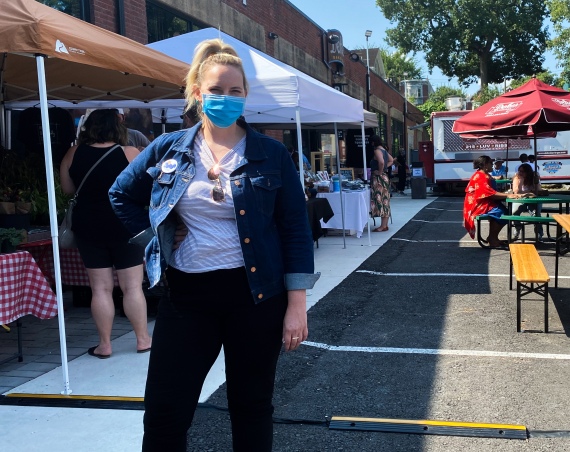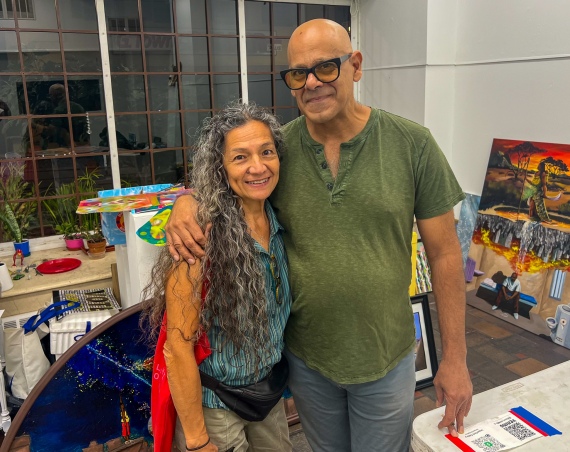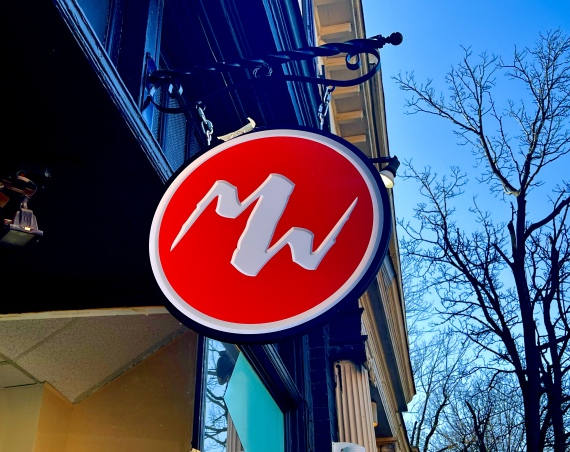Germantown is one of Philadelphia’s most historic neighborhoods. As mentioned in previous articles, Germantown is often called “Freedom’s Backyard” because of the revolutionary acts of resistance that happened here, like the Germantown Quaker Petition Against Slavery, the Battle of Germantown, and even antislavery meetings at the Johnson House in the 1800s with names like William Still in attendance.
However, many of these events happened before Germantown officially became part of Philadelphia. It wasn’t until the Act of Consolidation in 1854 that Germantown was adopted, along with other parts of the city like Frankford, Kensington, Belmont, and many more.
To celebrate 169 years of Germantown as a Philadelphia neighborhood, the Germantown Info Hub is listing a few fun facts about the community that have happened since 1854.
Germantown housed the first department store in the country owned by a Black man.
Sitting on top of the Sneaker Villa on the corner of Germantown Avenue & Chelten Avenue is the structure of the old C.A. Rowell department store. Former policeman, Curtis Sisco, bought the department store in 1974, making him the first Black man to own a department store in the country. It was a thriving department store that rivaled downtown stores like Wanamaker’s. Ultimately, the store did not survive, given the economic decline and new rail access residents had to travel downtown. Sisco helped solidify a legacy of Black entrepreneurship in the neighborhood.
The United States First Ransom Kidnapping Happened on Washington Lane
On July 1, 1874, brothers Charley (4) and Walter (6) Ross were kidnapped in front of their home at 537 East Washington Lane. The two men had previously given the boys candy, but on that particular day, they prompted them to hop in their vehicle, promising to buy the young brothers firecrackers. While Walter was released at a store, Charley remained with the kidnappers.
The brothers’ father, Christian K. Ross, searched for Charley but never found him before dying in 1897. Ross received a ransom note asking for $20,000 and instructions on how to pay the kidnappers, though all attempts were unsuccessful. Ross spent over $60,000 to find his son throughout his life but never did. Charley was never located, and his whereabouts remain a mystery. The Ross Mansion was demolished to make way for the Cliveden Presbyterian Church in 1926.
The First United Methodist Church of Germantown created a legacy of sanctuary in the neighborhood.
In 1984, the First United Methodist Church of Germantown voted to be a sanctuary church, which would house a family and shield them from possible deportation. Their first family was from Guatemala, and they eventually became American citizens.
In 2018, the church continued the tradition by inviting two more families, one Jamaican and one Guatemalan, to stay at the church after a request for help.
Aside from providing sanctuary, FUMCOG focuses on environmental justice and social & racial justice. The church’s website states, “FUMCOG affirms our commitment to the Germantown community and beyond by working together, taking risks for social equality and peace in our city, our nation, and our world.”
Germantown houses a one-of-a-kind museum.
Formerly housed in Maplewood Mall, the Black Writers Museum reopened to the public in 2014 at the historic Vernon House in the middle of Vernon Park. The Black Writers Museum is the only museum of its kind in America and exhibits Black literature.
The founder and executive director Supreme D. Dow cited the importance of the museum, saying, “Black literary arts have proven to have been an integral element of America’s social and political transformation.” The museum aspires to inspire a new generation of writers and creators.
The Black Writers Museum hosts a variety of community engagement activities throughout the year, like poetry readings, book signings, traveling exhibitions, The People’s Poetry & Jazz Festival, and more.
Three of Philadelphia’s Poet Laureates have ties to Germantown.
Three of the six Philadelphia Poet Laureates have ties to the Germantown neighborhood — all Black women. Sonia Sanchez, Philly’s first poet laureate, has been a longtime Germantown resident since the ’70s. Yolanda Wisher, the city’s third poet laureate, was born in Germantown and continues to do community and literary work in the neighborhood.
She and the fifth poet laureate, Trapeta B Mason, also a longtime Germantown resident, work together on the ConsenSIS project. ConsenSIS seeks to count, gather, and memorialize Black women and femme poets in the Philadelphia area, past and present.
Their work contributes to the existing literacy legacy in Germantown.
Germantown has cultivated many successful musical talents
Beyond the literary legacy, Germantown has also been the home of many renowned musicians in the United States. Those names include, but aren’t limited to:
- Tammi Terrell, whose funeral was also held on Haines Street
- PnB Rock, who was killed last year in Los Angeles
- “Father of Afrofuturism,” Sun Ra
- Member of The Stylistics, Airrion Love
- Songwriter for The Stylistics, Russell Thompkins, Jr.
- Grammy award-winner Bilal
- “Queen of Las Vegas” Lola Falana
- Rufus Harley, the world’s first Jazz Bagpipe Virtuoso
- Grammy award-winner Eve
- Ursula Rucker, who still resides in Germantown



